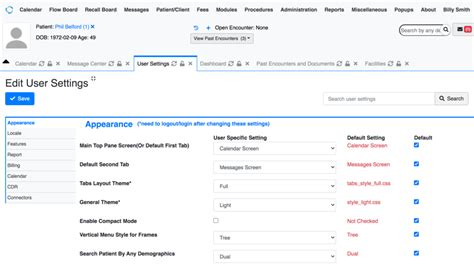In the boundless realm of healthcare administration, the conversation about electronic medical records (EMRs) is never-ending. The big names in this domain—Cerner and Epic—have solidified their places as the go-to systems for large healthcare providers. Nevertheless, this monopolized landscape is precisely why OpenEMR, an open-source EMR software, could be a game-changer. Can an open-source platform like OpenEMR cue a revolution in medical record management, or is it yet another alternative set to crumble under the weight of complex healthcare needs? Let’s delve deeper into the potential and challenges surrounding OpenEMR through the lens of industry professionals and on-the-ground comments from users.
A common sentiment among users is that the current EMR landscape is not exactly loved by its users. The comments unequivocally emphasize that both Cerner and Epic have their drawbacks, with a prevailing opinion that they aren’t particularly user-friendly despite their hold on the market. The reason for such reluctance to move away from these giants boils down essentially to one word: support. As one user aptly noted, ‘The challenges are not the challenges of tech. They aren’t sexy. It is just really boring and complex business logic, and the strength of both those companies is the vast amount of support they provide during install and future maintenance.’ This aspect of robust and continual support cannot be dismissed lightly, regardless of how innovative OpenEMR might be.
One cannot ignore that interoperability is king in healthcare IT. The difficulty of integrating new software with existing systems poses a massive hurdle for smaller competitors like OpenEMR. Comments underscore the importance of configurability and standardization of workflows even within a single hospital, which are significant bottlenecks for nimble yet less supported players. For example, nradov points out the effort required to modify workflows: ‘Do you modify your business processes to suit an existing piece of software or customize the software to suit your existing business processes?’ Finding a balance in such a uniquely complicated environment without multi-layered support and standard compliance is challenging at best and prohibitive at worst.
This complexity is only deepened by the environment in which these systems operate. Hospitals, clinics, and healthcare providers are unique—even idiosyncratic—in their operations and requirements. As nativeit explains, even smaller healthcare offices harbor several complexities, business logics, and customized integrations. Additionally, an EMR system must juggle regulatory requirements, integration with various medical devices, insurance, billing, patient demographics, and administrative processes. It’s a complex web where each thread must be seamlessly woven to support the whole. OpenEMR’s open-source nature provides flexibility but also demands a level of commitment and understanding from the implementing team, which might be daunting for smaller practices.
Yet, the open-source community does offer a beacon of hope for OpenEMR. The concept of harnessing community-driven development and improvements can indeed be a powerful driver. OpenDental’s relevance in the dental space illustrates that with enough polish and user-driven enhancements, an open-source solution can gain traction. Additionally, as nativeit mentions, international markets—particularly in developing countries—present a viable opportunity. ‘…things like OpenEMR is internationally in developing countries. There’s a great need for fundamental EMR services and information exchange that open-source solutions can be a really good fit.’
Ultimately, OpenEMR’s success will likely depend on how it navigates the intricate labyrinth of the healthcare sector. As the discussion suggests, the road is fraught with challenges, but also ripe with possibilities. Perhaps the real question isn’t whether open-source can revolutionize the EMR space, but how much support and innovation the community and stakeholders are willing to invest in shaping an open-source future for healthcare. If you wish to explore more about OpenEMR, visit their official website here.


Leave a Reply